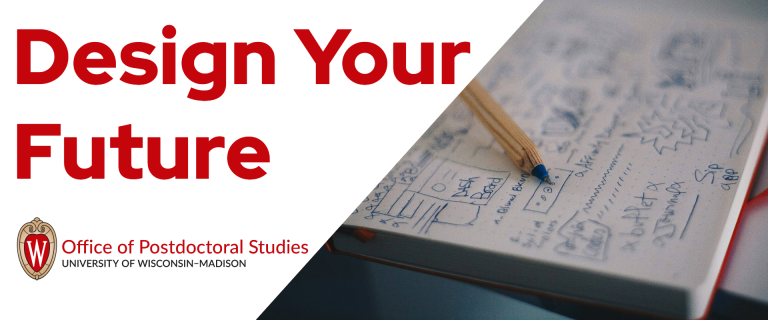
Reimagine your career possibilities with our Life Design course, specially created for postdocs.
Join us for six active and engaging sessions that blend self-discovery with actionable career strategies. Following a program based on the work of the Stanford Life Design Lab, their Designing Your Life course, and the eponymous book, you’ll apply principles of design thinking to explore new career possibilities, overcome obstacles, and set achievable goals.
As you progress, you’ll gain clarity on your values and aspirations, helping you make informed decisions about your future. Join us to connect with like-minded peers and design a career and a professional life that resonates with your interests, skills, and values.
We are no longer accepting applications for the 2024-25 program. Contact Imogen Hurley (ihurley@wisc.edu) to express interest in future career development programs.
This is an accordion element with a series of buttons that open and close related content panels.
Application Process
We are no longer accepting applications for the 2024-25 program. Contact Imogen Hurley (ihurley@wisc.edu) to express interest in future career development programs.
Any research associate, postdoctoral fellow or postdoctoral trainee at UW–Madison may apply to participate in the course.
We ask those interested in this series to fill out a survey and include a brief statement (150-250 words) describing your goals for this course. Are there specific questions that you are hoping to answer? What kinds of professional challenges are you hoping to address or specific types of careers that you are looking to pursue? In essence, where do you hope to be or what do you hope to know by the end of the six sessions?
Whether you’re seeking clarity on your next steps or looking to pivot in your career, this program offers a supportive environment for exploration and growth. Join us and design the life you aspire to lead.
Sessions
Session 1: Designing a Life and Career
February 6, 2025, 1:00-2:30 pm
Design thinking is a systematic approach to planning and problem solving that’s focused on people and solutions rather than problems or challenges. We’ll discuss what design thinking is, how its principles can be applied to planning your life and career, and what makes it different from other approaches to professional planning.
Session 2: Telling Your Story
February 20, 2025, 1:00-2:30 pm
Building on the idea that design thinking is fundamentally human centered, we’ll start with you and your story. What are the skills, interests, and values that you bring to your life and career? How did you get to where you are and where might that story lead next?
Session 3: Creating a Plan
March 6, 2025, 1:00-2:30 pm
Professional planning is often a stressful process, but it’s also an opportunity for ideation and exploration. We’ll discuss planning strategies that unlock rather than limit opportunities and that can help you identify interesting and exciting career pathways that will allow you to leverage your skills, pursue your interests, and live your values.
Session 4: Mentorship, Support, & Feedback
April 3, 2025, 1:00-2:30 pm
Although it’s easy to feel alone during the career exploration and planning processes, everyone has people who can help and support them as they find their way forward. We’ll work together to map out map out your personal mentoring and support network, discuss strategies for cultivating productive mentoring relationships, and talk about how to navigate potential mentor challenges.
Session 5: Prototyping Your Career
April 17, 2025, 1:00-2:30 pm
Design thinking prioritizes experimentation and the learning and improvement that comes from it. Learn about pathways for conducting career “experiments” to get the information that you need to make informed decisions and find your way forward. Designing your future is recursive and dynamic—you can and should try things out, learn what you like and don’t and seek incremental improvements. We’ll help you think about what this process looks like in the context of your own career.
Session 6: Execute and Refine Your Plan
May 1, 2025, 1:00-2:30 pm
Now that you’ve got a plan, it’s time to put it into practice. In this session we’ll cover strategies for implementing your plan, assessing how it’s working, and tweaking it to serve your needs. We’ll talk about how the process is often more important than the plan in getting to where you want to go and how you can use strategies that will help you move forward productively.